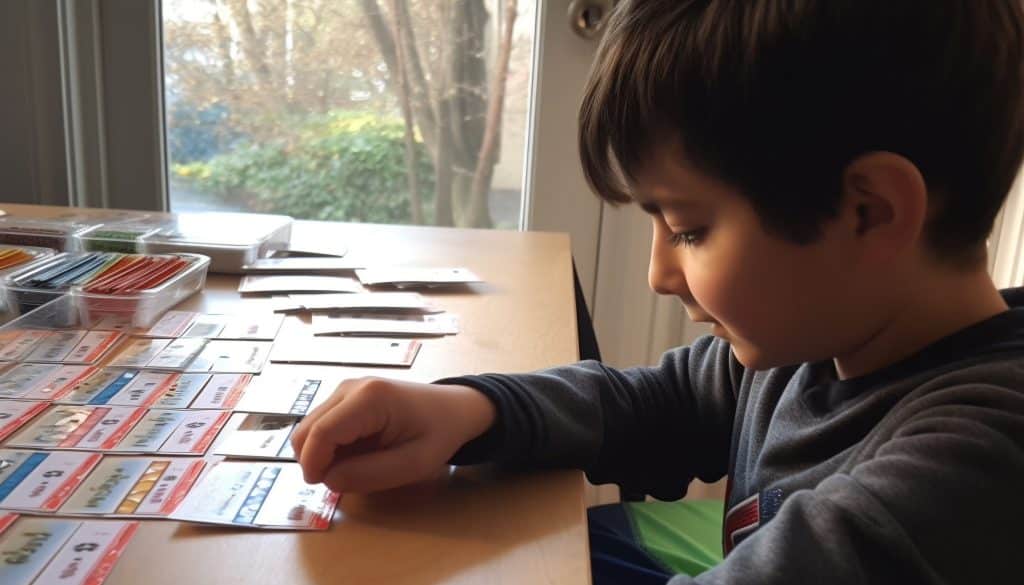Reflective Tags Capture Learning Arcs
Oliver Cooper July 29, 2025
In today’s fast-paced world, learning and growth have become lifelong endeavors. Whether in the classroom, the workplace, or personal development, the ability to track and reflect on learning progress is critical. Reflective tags have emerged as an invaluable tool in this process, offering a simple yet powerful way to capture and analyze the learning arcs of individuals. These arcs represent the trajectory of someone’s learning, from initial exposure to mastery, and reflective tags help visualize this journey effectively.
Reflective tags, often used in educational and professional development contexts, allow individuals to highlight key moments, insights, and progress throughout their learning process. By using these tags to reflect on their experiences, learners can gain a deeper understanding of how they evolve over time. In this article, we will explore how reflective tags capture learning arcs, and why they are an essential tool for continuous growth.

What Are Reflective Tags and Why Do They Matter?
1. Defining Reflective Tags
Reflective tags are markers or labels that help identify key insights or moments during a learning journey. These tags are used in conjunction with written or digital notes, journals, or even learning management systems (LMS). When a learner encounters a significant concept, challenge, or breakthrough, they can tag it for future reflection.
For instance, in an educational setting, a student might tag an essay with keywords like “critical thinking,” “feedback received,” or “improvement made.” These tags enable learners to reflect on their thought processes and identify patterns in their learning. By capturing these moments, learners gain a clear understanding of how they’ve progressed over time.
Key Insight: Reflective tags provide a way to categorize and mark important milestones in the learning journey, making it easier to track growth and evolution.
2. Learning Arcs: The Pathway to Mastery
The concept of a learning arc refers to the trajectory of someone’s knowledge and skills development. In any field, learning follows a predictable arc: an individual begins with little understanding, faces challenges along the way, and eventually masters the subject.
Reflective tags play a key role in visualizing these arcs. By tagging significant moments, learners can trace the steps that lead to mastery, whether it’s a specific concept, an achievement, or a challenge overcome. This process of reflection helps learners see their growth and assess where they stand on the learning arc.
For example, consider someone learning a new language. At first, the individual might tag entries like “struggling with pronunciation” or “learning vocabulary,” but over time, they may tag experiences such as “conversing in full sentences” or “reading a book in the target language.” These tags mark the different stages of the learning arc, making the journey clear and tangible.
Key Insight: Reflective tags allow learners to track their learning arcs, turning abstract growth into something more visual and measurable.
How Reflective Tags Enhance Personal and Professional Growth
3. In Education: Tracking Student Progress
In educational settings, reflective tags serve as powerful tools to help both students and teachers track learning progress. Teachers can ask students to tag their assignments or journals to show how they’ve developed over time. For instance, a student might use reflective tags to highlight challenges they faced, strategies they used to overcome them, and how their understanding evolved.
Teachers can then use these tags to provide tailored feedback, helping students understand their learning arcs better. This approach not only offers valuable insights into where the student is excelling but also where they need improvement.
- Example: A student writing a research paper might use tags like “research skills,” “writing clarity,” or “analysis depth.” As the student revises and improves their paper, these tags evolve, showing progress in specific areas.
Key Insight: Reflective tags give teachers and students clear markers of progress, which can enhance personalized learning experiences.
4. In the Workplace: Professional Development and Reflection
Reflective tags aren’t just for students—they also have significant applications in the workplace, especially for professionals looking to develop their skills. Employees can use reflective tags to document their learning on projects, seminars, or feedback sessions. These tags can help them track their learning arcs and pinpoint areas where they have grown or need further development.
For example, an employee working on leadership skills might tag their experience with words like “leadership challenges,” “feedback applied,” or “team collaboration.” Over time, they can review these tags and see how their leadership abilities have improved.
Key Insight: Reflective tags provide a way for professionals to continuously reflect on their growth and adjust their learning strategies for career advancement.
5. Personal Growth: Self-Reflection and Continuous Learning
Reflective tags can also be an essential tool for personal development. In the age of self-help and self-improvement, individuals are increasingly looking for ways to track their progress in learning new skills, habits, and mindsets. Whether you’re learning to cook, starting a fitness regimen, or developing a new hobby, reflective tags can help you track the ups and downs of your personal learning arc.
By tagging moments of success, failure, and breakthrough, you create a roadmap of your personal growth. This reflection not only boosts motivation but also provides insights into which strategies work best for you.
- Example: Someone trying to improve their mental health might use tags like “mindfulness practiced,” “emotions recognized,” or “stress management strategies.” Over time, they’ll see how their emotional well-being evolves.
Key Insight: Reflective tags offer a powerful way to track personal growth and identify patterns that can lead to long-term improvement.
Practical Applications of Reflective Tags
6. Tips for Implementing Reflective Tags
Incorporating reflective tags into your learning routine doesn’t require extensive effort. Here are some practical ways to get started:
- Use a Digital Journal: If you prefer digital tools, apps like Evernote, OneNote, or Google Keep allow you to add tags to your notes. You can create separate tags for themes like “problem-solving,” “feedback,” or “confidence.”
- Create a Tagging System: Develop a consistent tagging system based on your learning goals. For instance, you might use tags for specific subjects, skills, or even emotional states. Stay consistent with the terms you use.
- Review Regularly: Reflect on your tags periodically to track your progress. Look for patterns or areas where you have excelled and areas where you may need further improvement.
- Seek Feedback: Ask for feedback from teachers, mentors, or colleagues based on your tagged entries. Their perspectives can help you gain clarity on where to focus next.
Key Insight: Digital tools make it easy to incorporate reflective tags into your learning routine, helping you track progress efficiently.
Conclusion
Reflective tags capture learning arcs by making your personal and professional growth more visible and tangible. Whether in education, the workplace, or personal development, these tags offer a structured way to track progress and reflect on key learning moments. By organizing your thoughts and experiences with tags, you gain valuable insights into your own development and areas of improvement.
Incorporating reflective tags into your daily routine can turn abstract growth into something measurable, helping you continuously improve. As the world moves towards lifelong learning, these simple tools are invaluable for anyone committed to self-improvement.
Reference
- Guided reflection and learning improvement, https://en.wikipedia.org
- Reflective writing’s benefits in learning, https://www.facultyfocus.com
- The effectiveness of reflective interventions, https://www.sciencedirect.com







